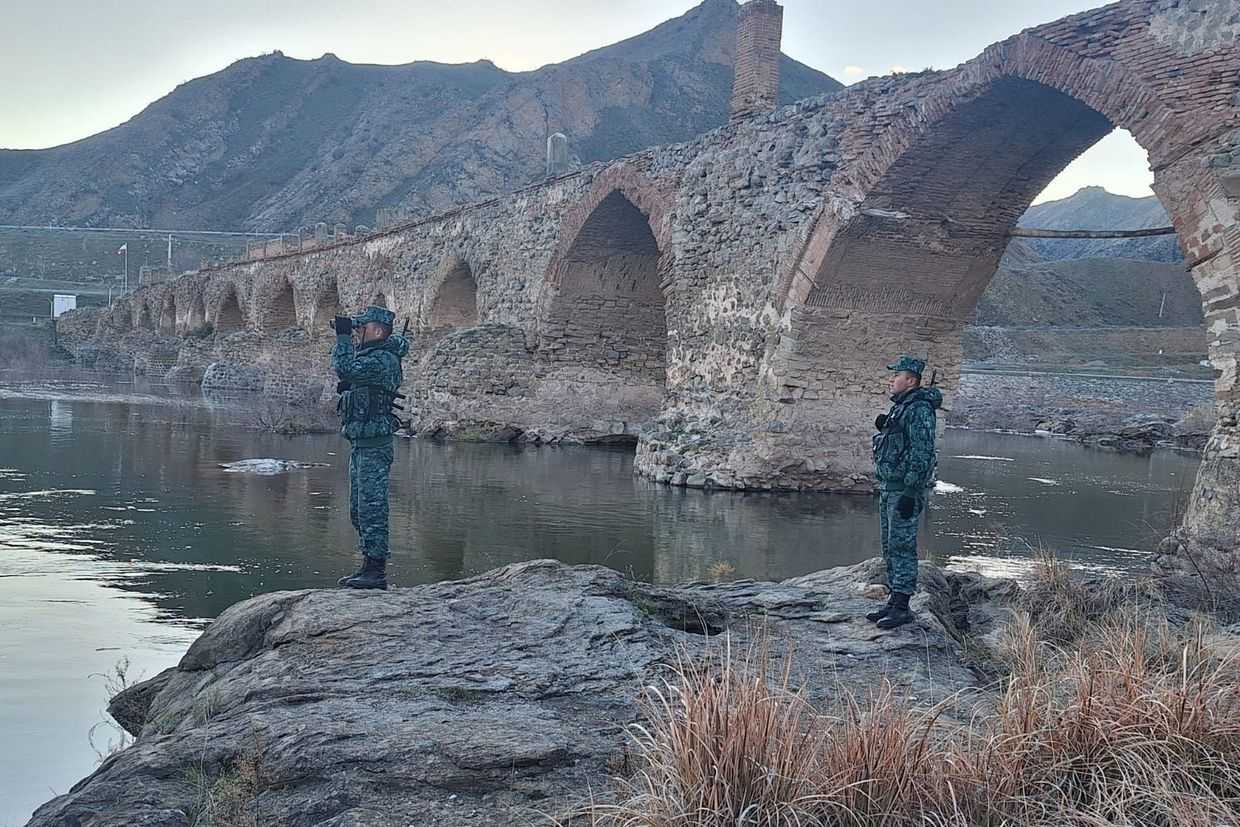‘The hunter chooses the most important people’, brother of kidnapped Talysh historian says

The brother of kidnapped Talysh historian Zahiraddin Ibrahimov has accused Azerbaijan of ‘hunting’ Talysh people, particularly those who have some influence and respect within the greater population.
‘I can call it the hunt for the Talysh people and the hunting is continuing’, Ibrahimov’s brother, Balarza Ibrahimov, told OC Media on Wednesday.
‘The hunter chooses those who have some influence or respect, and who are able to excite the public and open their eyes. And if their ideas do not coincide with the policy in the country at that time, then they are enemies’.
Zahiraddin Ibrahimov reportedly disappeared on 26 March in Yekaterinburg, Russia. Shortly afterwards, his relatives in the Lankaran district in southern Azerbaijan received a letter from Azerbaijan’s State Security Service (SSS), which listed several charges against Ibrahimov, including treason.
According to his lawyers, Ibrahimov remains in an SSS detention centre.
Neither the SSS nor pro-government Azerbaijani media outlets have commented on Zahiraddin Ibrahimov’s kidnapping.
Talysh people are Azerbaijan’s largest minority, estimated to be at least 500,000 and up to one million, but have long struggled to secure their own ethnic autonomy and civil rights, including the ability to access education in the Talysh language.
Was Ibrahimov even an Azerbaijani citizen?
According to Balarza Ibrahimov, his brother should not have been considered to have dual citizenship with Azerbaijan and Russia, emphasising that by all accounts he should have been only a Russian citizen.
‘Officially, there is no dual citizenship between the two countries. My brother complied with all legal norms to cancel his Azerbaijan citizenship’, Ibrahimov said.
He added that his brother had followed all the legal steps to renounce his Azerbaijani citizenship at the embassy in Russia, but claimed that Azerbaijan had not approved his cancellation request.
Balarza Ibrahimov additionally questioned why, if Azerbaijan considered his brother to be a citizen, they deported him in 2014.
‘How can Azerbaijan expel its citizens from the republic? If he was a citizen, then on what basis, on whose behalf, if a crime was committed, why was he not arrested?’, Ibrahimov asked.
According to Balarza Ibrahimov, the answer the authorities gave at the time was that Zahiraddin Ibrahimov was not actually an Azerbaijani citizen, and because his actions were considered contrary to state interests, they would not allow him to speak and stay in Azerbaijan.
Besides remaining an official Azerbaijani citizen, according to the official Central Election Committee webpage, Zahiraddin Ibrahimov remains on the official voter list. This was despite current legislation stating that if a voter goes into military service, studies abroad, or works and lives abroad for a long period of time, this person’s name should be removed from the list.
‘He loved to teach children’
In an interview Zahiraddin Ibrahimov gave to Russian radio station Yekaterinburg FM in February 2022, he described himself as a teacher with 22 years of experience as well as the author of an Azerbaijan–Talysh dictionary.
For Ibrahimov, the Talysh language — which is from the northwestern Iranian language family, as opposed to Azerbaijani in the Turkic language family — is crucial in saving the Talysh culture. He emphasised that it is even more important as Talysh rights are being destroyed, and increasing numbers of non-Talysh representatives are gaining high-ranking positions in state bodies in Azerbaijan.
In January 2022, Zahiraddin Ibrahimov, along with his partner Elshan Hasanov, established a school within the Talysh Cultural Centre in Yekaterinburg to teach Talysh language, history and culture. The school, which operated every Saturday, was open to any child who had the desire to learn the Talysh language.
In 2023, however, the classes were stopped and the school closed.
‘There was no talk of finances. They used the place without having to pay rent, and without making a penny’, Balarza Ibrahimov told OC Media, adding that his brother Zahiraddin ‘loved to teach the children’.
According to Balarza Ibrahimov, the school was closed due to counter propaganda.
‘Those who sent their children there were told that it was unnecessary work that could cause headaches’.
Besides teaching, Zahiraddin Ibrahimov also attended conferences, including in Armenia, where he spoke about Talysh radio programmes, including the first ever such broadcast, which was based in Shusha (Shushi) in Nagorno-Karabakh.
The Voice of Talyshstan began broadcasting in March 2013, at the initiative of the Caucasus Centre of Iranian Studies and the Modus Vivendi Centre. The programme was on air three hours a day, presenting cultural articles and music, and touching upon issues Talysh people were concerned with.
According to Balarza Ibrahimov, the alleged salary his brother received from Armenia were honorariums for speaking about this radio station and giving interviews about Talysh culture.
He emphasised that the demands in question by Talysh people were not separatist in nature, noting that what they wanted was, for example, a programme in the Talysh language that could be broadcast for 15 minutes a day or that the government would finance a newspaper in the Talysh language.
‘In our schools, the Talysh language could not be taught because the teachers did not know this language’, Balarza Ibrahimov said.
He also highlighted that when Azerbaijan wants to ‘use this accusation of separatism, they use it, but no one has been convicted for this accusation in Azerbaijan’, claiming that there is no actual way to prove such a conviction as Talysh activists such as his brother are not actually separatist.
The subject of Talysh rights and culture have been a sensitive subject for the Azerbaijani authorities for decades. In 1993, a short-lived separatist entity in southern Azerbaijan emerged calling itself the Talysh-Mughan Autonomous Republic. Its leader was soon arrested.
Since then, Azerbaijan has frequently arrested Talysh activists and cultural figures, including on charges of treason.
In 2024, Azerbaijan arrested two researchers on charges of treason, including ethnic Talysh researcher, Igbal Abilov and researcher and writer Bahruz Samadov.
In October of that same year, Azerbaijan sentenced ethnic Talysh activist Mirhafiz Jafarzade, who advocated for the creation of Talysh school textbooks in Azerbaijan, to 16 years in prison on charges of treason.











